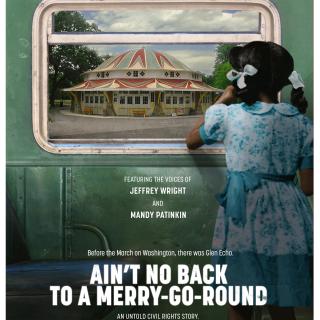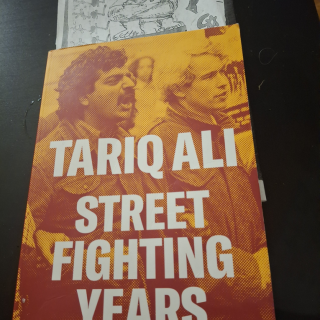Advertisement
Allen Ginsberg. Jack Kerouac. William Burroughs. Lucien Carr.
Lucien Carr?
Carr may be less familiar than the others—all icons of the Beat Generation—but he apparently played an important role in the literary movement’s birth. That role is explained in the based-on-fact flick Kill Your Darlings.
This stylish first feature by director/co-writer John Krokidas is a murder mystery of sorts, but the crime doesn’t materialize until late in the proceedings. For the most part, the focus is on Ginsberg (Harry Potter’s Daniel Radcliffe) and the quest he undertakes after becoming a student at Columbia University in 1943. While World War II grinds on, Ginsberg and other rebellious young writers basically declare war on literary conformity.
And how does Carr (Dane DeHaan) figure in? He’s a student who has no writing ability of his own, but he appears to be an expert at inspiring writers—particularly writers who, like Ginsberg, are attracted to his caution-to-the-wind attitude and blond good looks.
Though Ginsberg arrives on campus determined to buckle down and study, he eagerly sets aside his books when Carr invites him to a party in a bohemian part of town. Soon they’re spending time with Burroughs (Ben Foster) and Kerouac (Jack Huston), with whom they indulge in “reefer” and sundry other drugs while plotting the downfall of Ogden Nash and the stodgy literary world he represents.
Watching on with a disapproving eye, meanwhile, is ex-professor David Kammerer (Dexter’s Michael C. Hall), who seems to have some kind of jealous attachment to Carr.
Carrying much of the film, Radcliffe leaves Harry Potter even farther behind with his unfussy turn as Ginsberg, whose literary interests and psyche were likely shaped by having a father who was a writer and a mother who struggled with psychosis. In fact, all of the actors do a commendable job.
Director Krokidas captures the look and sound of the era, often accompanying scenes with vintage jazz. As co-scripter, he also fills the dialogue with literary allusions and youthful pretension, re-creating the heady atmosphere of being among friends audacious enough to believe they can change the world.
Don’t expect many serious discussions of literature, though. For these young Turks, rebellion mainly consists of introducing sex, drugs and other verboten topics onto the landscape.
All the while, Ginsberg and others take turns fawning over and competing for Carr’s attention. If the film has one flaw, it’s that it’s hard to fathom what they see in this handsome but talentless individual, who is not above taking advantage of their friendship. We can only suppose it has something to do with living in a secretive era when healthy gay relationships were hard to come by.
At any rate, it all comes to a head when a murder invades the story and brings an end to the essentially carefree nature of the friends’ rebellion. Fortunately, as we now know, it did not end the rebellion itself.
Rating: 4 stars (out of 5)



